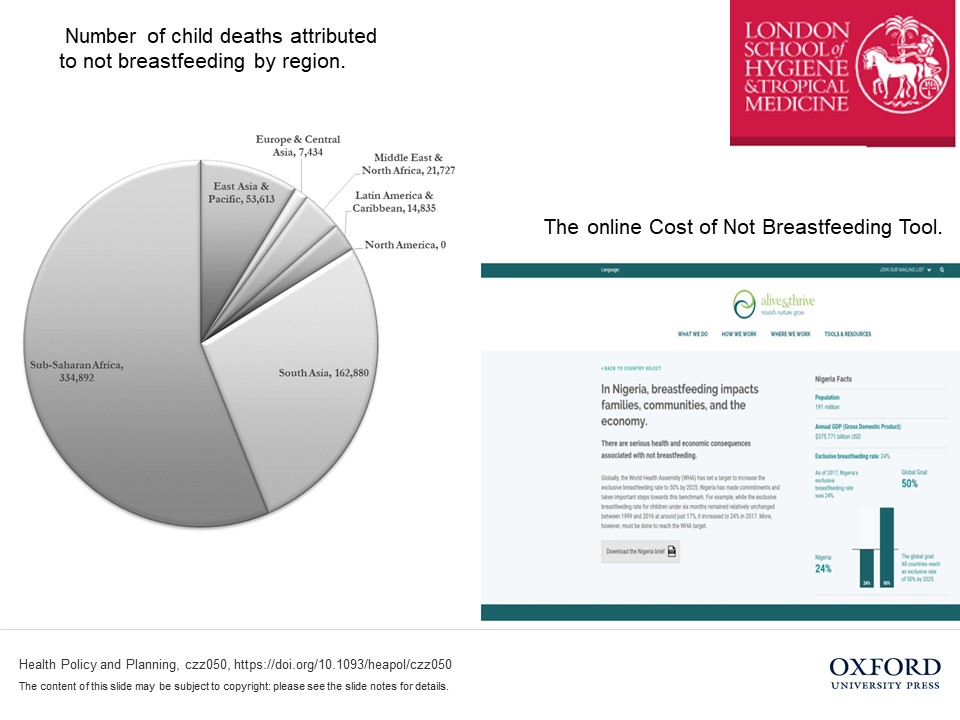

Amamentação exclusiva nos primeiros 6 meses evitaria desperdício de US$1 bilhão por dia
The cost of not breastfeeding: global results from a new tool
De acordo com estudo global, interromper a amamentação prematuramente aumenta o risco de vários problemas de saúde e gera mortes de 595 mil crianças e 98 mil mães por ano
Por Crescer online
Além de trazer benefícios para mães e bebês, a amamentação é a melhor opção para a economia mundial. É isso que aponta a nova pesquisa ‘O Custo de não Amamentar’ que reúne dados de mais de 100 países. De acordo com o estudo, a economia global pouparia US$ 1 bilhão (cerca de R$ 3,76 bilhões) se a totalidade das mulheres pudesse amamentar os filhos exclusivamente durante os primeiros seis meses, como recomenda a Organização Mundial de Saúde.
A pesquisa, publicada no jornal acadêmico de Políticas e Planejamento da Saúde da Universidade de Oxford, fez o cruzamento entre as informações coletadas da população e os estudos já publicados sobre o tema. Os resultados mostraram que 595 379 mortes de crianças entre 6 meses e 5 anos por ano, atribuídas à diarreia e a pneumonia, poderiam ter sido evitadas com a amamentação exclusiva nos primeiros seis meses.
A análise também estima que 974.956 casos de obesidade infantil por ano podem ser atribuídos à ausência ou interrupção prematura da amamentação. Já para as mulheres, estima-se que a amamentação teria o potencial de prevenir anualmente 98.243 mortes por diabetes e cânceres de mama e ovário.
Ao prevenir o aparecimento dessas doenças, os pesquisadores estimam que haveria uma economia anual de US$ 1,1 bilhão com os custos de saúde. Já a perda de produtividade causada por essas mortes prematuras de mães e filhos foi estimada em US$ 53,7 bilhões por ano, de acordo com os cientistas.
O maior prejuízo econômico, porém, vem das perdas cognitivas de crianças que não são amamentadas nos seis primeiros meses e não recebem nutrição adequada, o que equivaleria a menos US$ 285.4 bilhões gerados por ano na economia mundial.
No total, o custo global de não amamentar exclusivamente durante os primeiros seis meses foi calculado pelos pesquisadores em us$ 341,3 bilhões por ano.
“Os custos humanos e financeiros de não amamentar destacam a importância de fomentar uma cultura que apoie e proteja a amamentação em escala global”, escreveram os autores do artigo estudo, Dylan Walters, LinhPhan e Roger Mathisen.
The cost of not breastfeeding: global results from a new tool
Dylan D Walters, Linh T H Phan, Roger Mathisen
Health Policy and Planning, czz050, https://doi.org/10.1093/heapol/czz050
Abstract
Evidence shows that breastfeeding has many health, human capital and future economic benefits for young children, their mothers and countries. The new Cost of Not Breastfeeding tool, based on open access data, was developed to help policy-makers and advocates have information on the estimated human and economic costs of not breastfeeding at the country, regional and global levels.
The results of the analysis using the tool show that 595 379 childhood deaths (6 to 59 months) from diarrhoea and pneumonia each year can be attributed to not breastfeeding according to global recommendations from WHO and UNICEF. It also estimates that 974 956 cases of childhood obesity can be attributed to not breastfeeding according to recommendations each year.
For women, breastfeeding is estimated to have the potential to prevent 98 243 deaths from breast and ovarian cancers as well as type II diabetes each year. This level of avoidable morbidity and mortality translates into global health system treatment costs of US$1.1 billion annually. The economic losses of premature child and women’s mortality are estimated to equal US$53.7 billion in future lost earnings each year. The largest component of economic losses, however, is the cognitive losses, which are estimated to equal US$285.4 billion annually.
Aggregating these costs, the total global economic losses are estimated to be US$341.3 billion, or 0.70% of global gross national income. While the aim of the tool is to capture the majority of the costs, the estimates are likely to be conservative since economic costs of increased household caregiving time (mainly borne by women), and treatment costs related to other diseases attributable to not breastfeeding according to recommendations are not included in the analysis.
This study illustrates the substantial costs of not breastfeeding, and potential economic benefits that could be generated by government and development partners’ investments in scaling up effective breastfeeding promotion and support strategies.
